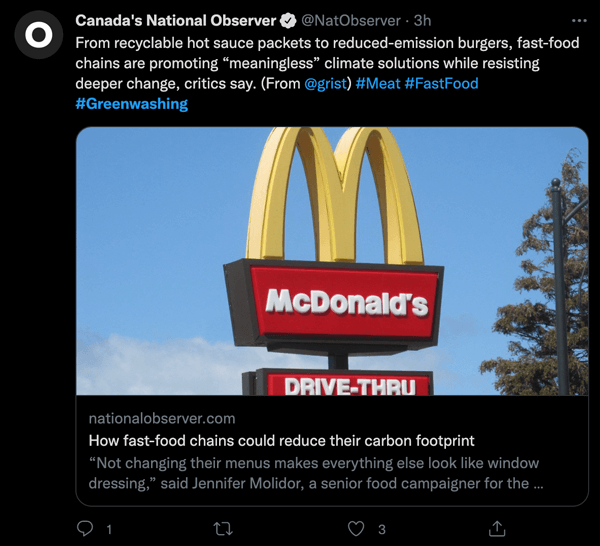Greenwashing
Deceptively claiming to be eco-friendly
Example
This shirt says it's made from recycled materials in big letters, but I found out it's only 2%! That's such greenwashing

Related Slang
| Tree hugger | A person who cares about the environment |
| CAFO | Concentrated Animal Feeding Operation |
| Foodie | A person who loves food |
| FDA | Food and Drug Administration |
| Granola | Environmental and health-focused lifestyle |
| Crunchy | Natural and sustainable lifestyle |
| Chasing clout | Doing things just to become popular |
| Get woke | Become aware of social issues |
| Virtue signaling | Demonstrating moral superiority |
| Performative activism | Advocating a cause to gain social standing |
 How well do you know your Fantasy Football slang?
How well do you know your Fantasy Football slang?
Greenwashing is when a company exaggerates, misleads, or lies to consumers about actions they are taking to protect the environment. Companies who engage in greenwashing hope to benefit from the positive PR environmentally-sustainable actions can bring, while avoiding the real work of making their business Earth-friendly.
What is an example of greenwashing?
Many large, environmentally-damaging companies have engaged in some form of greenwashing, to garner goodwill from eco-conscious consumers. For example, in 2019, McDonald's switched from using plastic straws to using "eco-friendly" paper straws. After the switch, journalists discovered the "eco-friendly" straws were not recyclable, making them a step backward from the recyclable plastic straws they replaced.
What is the origin of greenwashing?
Greenwashing is a play on the term whitewashing, which means to deliberately conceal incriminating or unpleasant information. Environmentalist Jay Westerveld coined the term greenwashing in a 1986 essay discussing the hotel industry's practice of asking guests to reuse towels to "save the environment."
Variants of greenwashing
In some contexts, you may see greenwashing referred to as "green sheen" or greenscamming.